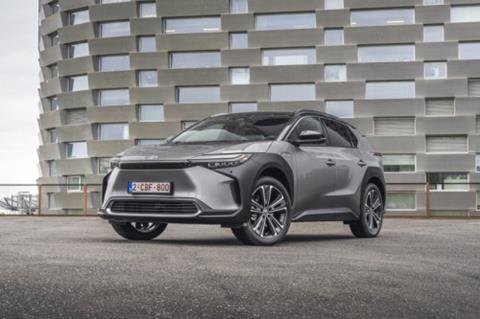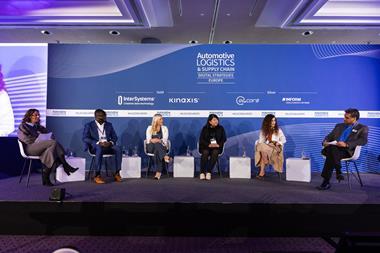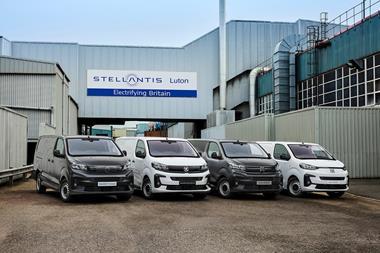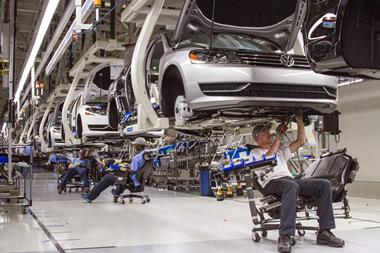Toyota said it is assessing customer demand for electric vehicles and responding flexibly with a range of model options, despite reports it was cutting its EV output. The carmaker was responding to a report in the Nikkei financial news source which said it has revised targets for pure battery electric vehicle (BEV) production and will cut its forecast for 2026 to 1m cars, around 30% lower than its previous forecast.
Toyota currently makes two pure BEV models – the bZ4X crossover and the Lexus RZ – but the vast majority of its electric vehicle sales are made up of full hybrids.

The Nikkei said Toyota’s decision has been prompted by a slowdown in the global EV market.
However, in a statement sent to Automotive Logistics Toyota said: “There is no change in the fact that we are moving forward with preparations to produce BEVs and other electric vehicles, including securing batteries, based on 1.5m units in 2026 and 3.5m units in 2030.”
It did state that the number of vehicles indicated is not a target but a standard for stakeholders and a guideline for building a better system to meet future demand for BEVs. The carmaker said putting customer needs first was important and it needed to “introduce the options they seek in a timely manner”. Those options include BEVs alongside hybrid EVs and plug-in hybrid EVs. Toyota said it was developing various options to respond flexibly to demand but its plans for electrification were undiminished.
“We will continue to expand our supply chain, including batteries, establish a sales structure, improve infrastructure such as recharging facilities, and promote software development to be ready to produce and sell electrically powered vehicles,” said the carmaker in its statement.
Next month Toyota is taking over its lithium battery supplier PrimeEarth EV Energy and making it a wholly owned subsidiary called Toyota Battery.
The carmaker sold more than 59,000 pure BEVs in 2023 and 1.7m vehicles including BEVs, hybrids and fuel cell EVs.
EV sales higher than ever
A number of other carmakers have recently made announcements about a more flexible commitment to EV production, including Ford and GM. Ford said it will concentrate battery EV investments on commercial vans and pickup trucks and use hybrid technology for its three-row SUVs. Meanwhile, GM has pushed back the opening of its second US etruck plant in Michigan by six months. The plant is being retooled and will now open in mid-2026. That six-month delay could impact its previously guideline to make 1m EVs in North America by next year.
Volkswagen has also recently indicated that it may close a vehicle assembly plant as its streamlines costs in the transition to electrification and it has recorded sales declines for its ID.4 and ID.5 EVs of 30% and 28%, respectively, in the first half of 2024.
However, the revisions to production across the industry do not necessarily point to a global slowdown in BEV production, according to Ultima Media’s business analyst Daniel Harrison. He said that commentators are ignoring the global context and focusing on a particular month, region or individual carmaker and applying the findings to the global EV market. Harrison said that looking at the leading 15 EV country markets globally, which account for over 90% of the EV market, EV sales in the first half of 2024 were 6.15m (21% of the market) and higher than they have ever been.






































No comments yet